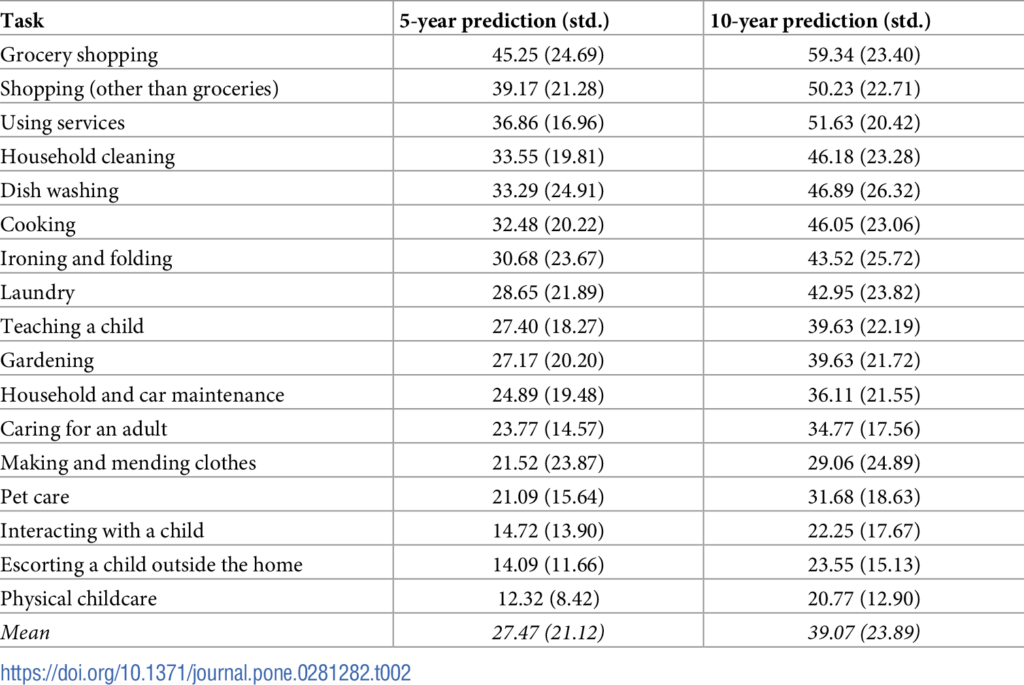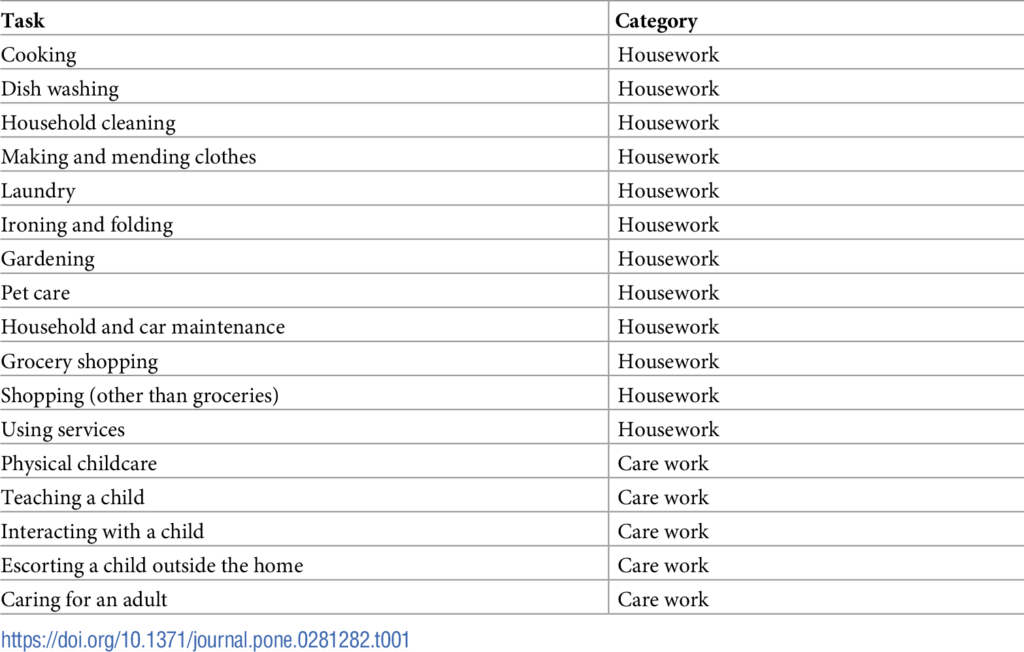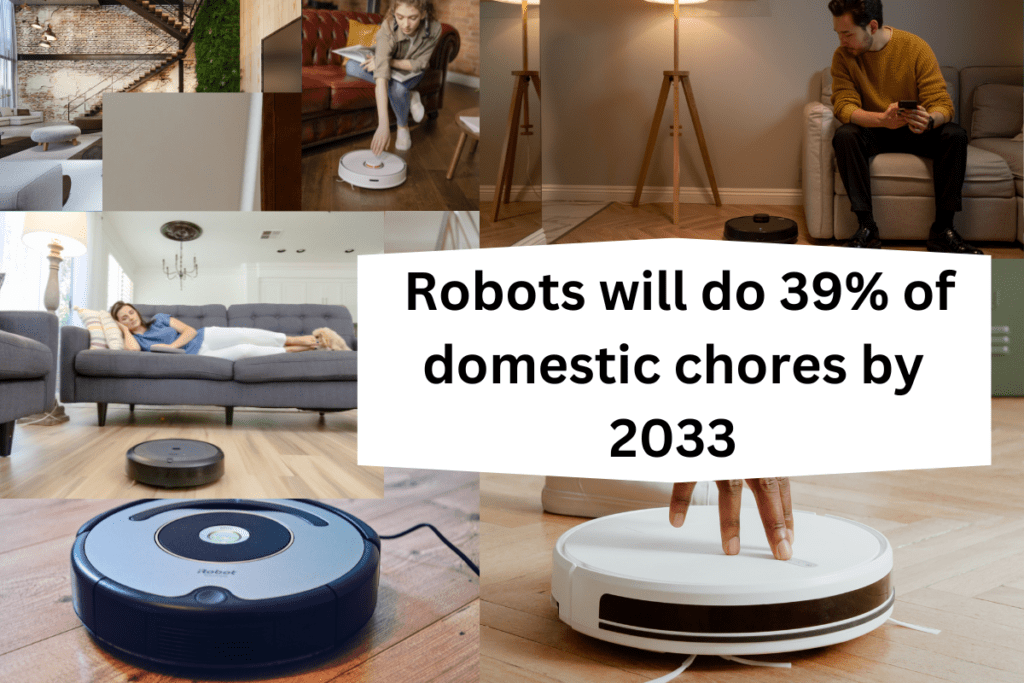The researchers asked 65 experts about how likely it is that these tasks will be done by robots in the next 10 years. On average, the experts thought that 39% of the time spent on these tasks could be done by machines. The experts from Japan were more pessimistic, possibly because of differences in gender roles. The study showed that predictions about the future of work are affected by social factors and should be considered more carefully.
Recent research indicates that robots are likely to take over nearly 39% of domestic chores within a decade from now. The study was conducted by asking 65 artificial intelligence experts to forecast the level of automation that could be achieved in household tasks by 2033. The results suggested that shopping for groceries was the task most likely to see the most automation while caring for the young or elderly was least likely to be impacted by Artificial Intelligence (AI).

The study was conducted by researchers from both the University of Oxford and Ochanomizu University in Japan to understand the possible impact of robots on unpaid domestic work. They sought to investigate if robots would help alleviate some of the burdens of household chores for humans. As per the researchers’ observations, “robot vacuum cleaners” have become the most widely produced and sold robots in the world. The research team consulted 29 AI experts from the UK and 36 from Japan to obtain their predictions on the matter.
The research showed that male experts from the UK had more positive predictions about the future of domestic automation as compared to their female counterparts. On the other hand, female experts from Japan had more positive predictions than their male counterparts. However, the degree to which experts predicted automation could be applied varied significantly. Lulu Shi, postdoctoral researcher at the Oxford Internet Institute, noted that only 28% of care work, which includes activities such as teaching, accompanying children, or caring for an older family member, is expected to be automated.
The research also found that experts believed that technology would reduce the time spent on grocery shopping by up to 60%. Although, there has been a long history of predictions robots taking over domestic chores within the next ten years. Some scepticism, therefore, may be warranted. For example, a TV show called Tomorrow’s World reported in 1966 on a household robot that could perform tasks such as cooking dinner, walking the dog, babysitting, shopping, mixing a cocktail, and more.
Ekaterina Hertog, one of the authors of the study, draws parallels between the optimism surrounding self-driving cars and that of domestic automation. She suggests that creating a robot capable of performing multiple or general tasks is challenging and expensive. Hence, it is easier and more useful to create assistive technology that helps humans instead of replacing them.

The study suggests that domestic automation could free up significant time spent on unpaid domestic work. Men of working age in the UK do around half as much of this unpaid work as working age women. In Japan, men do less than a fifth. The disproportionate burden of household work on women negatively affects their earnings, savings, and pensions.
Therefore, according to the researchers, increasing automation could lead to greater gender equality. However, it is Important to note that technology can be costly, and if the systems to assist with housework are only affordable to a subset of society, it could lead to a rise in inequality in free time. Prof Hertog also highlights concerns regarding the privacy issues raised by homes full of smart automation. She warns that we need to prepare for and manage the challenges of this technological revolution.



